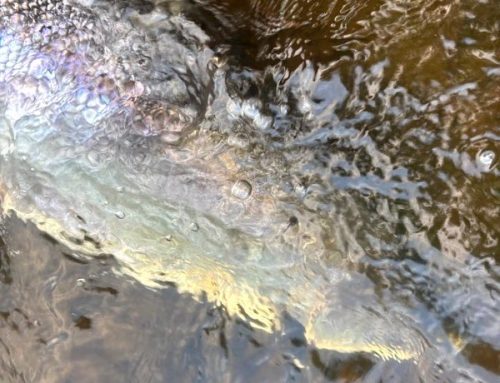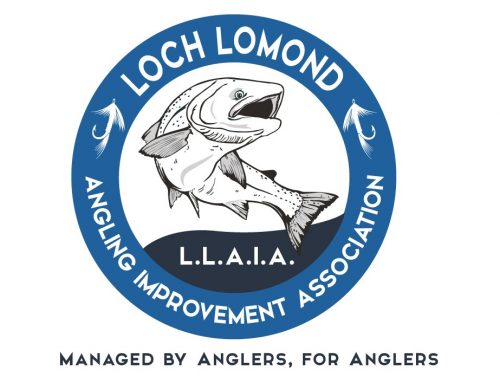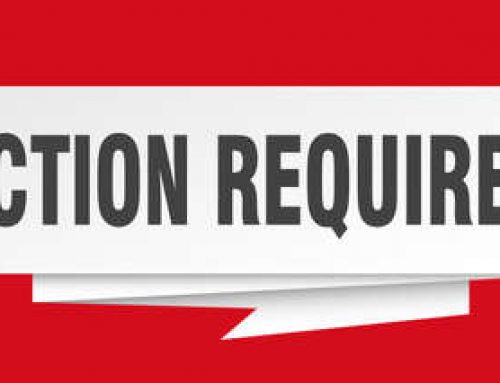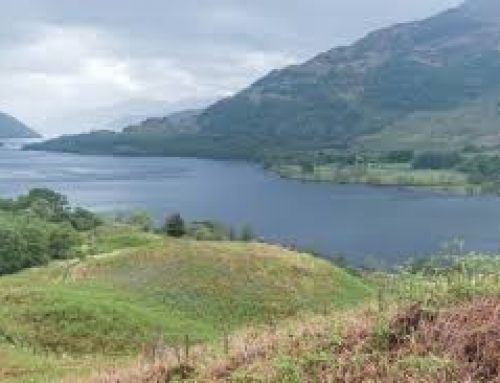Fishery Improvement Plan
In a recent ‘reports’ update we mentioned that the committee is currently engaging with the Scottish Centre for Ecology and Natural Environment (SCENE) at Rowardennan in drawing up improvement plans for the system. At committee meetings earlier this year it was agreed that, without discounting other bodies, SCENE was likely to be one of the best sources available for advice in the future management of the system.
Earlier this month the chairman and secretary met with Professor Colin Adams and Ms Hannele Honkanen, marine biologist, a meeting which lasted over 2.5 hours, discussing the way forward for the Lomond System in the short, medium and long terms. Professor Adams and Ms Honkanen gave presentations on work that they had previously carried out on the system and on a future project that the EU has already granted funding for.
Our members will be well aware of the ‘global’ decline in wild salmon stocks and that it is not something peculiar to the Lomond System. We already know that many of the causes are beyond our control with others yet unknown. Mention has already been made of the Atlantic Salmon Trust’s ‘Missing Salmon’ project which may provide further answers. We can only hope so. In the meantime the committee is limited in what can be done to help improve matters. We are probably expecting Professor Adams to work a miracle but he is well aware of what we aim to achieve. We expect a response from SCENE very shortly but will not be making public any details of the likely costs involved. Members will be advised in due course through our news letter.
The committee agree that without doubt the best course of action to embark on is habitat improvement and the identification and regeneration of barren areas or those found to be under carrying capacity. This was discussed at the meeting with SCENE.
This year the Lomond System was assessed by Marine Scotland as Cat 2 meaning that the stocks of wild salmon are believed to be at a level where some harvesting of fish can take place in line with a local conservation plan. Our members have been issued with 3 tags meaning that 3 fish can be killed. Catch and release figures highly in the conservation plans of every river in Scotland. We are aware that c&r is already second nature to many of our fishermen and hope that even with the 3 fish restriction in place serious thought is given before a salmon is despatched.
For the avoidance of doubt…
1. For a variety of reasons the committee will not be opening a hatchery. If we do require to carry out limited stocking using eyed ova and fed or pre fed fry then SCENE already have state of the art hatchery facilities at Rowardennan.
2. Neither will we be investing large sums of association funds in a smolt (rearing off site) programme which has already been tried and proved to be totally unsuccessful.
Loch Lomond Fisheries Trust
The LLFT holds data which may well be useful for our future plans. The Trust have already passed the committee some research data held by them which had never been previously released to ourselves or other riparian owners.
We await the results of the smolt trapping this year which appears to have had better results than any other year since the project began. This adds to the overall picture and helps to confirm that the system may be healthier than we think. We are all aware that Marine Scotland’s methodology in determining our annual conservation category is based on catch returns. These are certainly an indicator but other factors need to be taken into account. Our own catch returns for season 2018 showed a marked increase in grilse catches which is also very encouraging.
Many will remember the EGM of December 2016 and the impasse which followed between the LLFT and the Association. Good diplomacy between ourselves and the riparian owners brought this situation to an end and a completely new Trust was formed. So far this year it has shown a level of activity which was missing in the past. It appears to be working more in line with other fishery trusts across Scotland and is becoming largely self funding.
In April we received communication from the LLFT that as a riparian owner we were invited to make a donation to their funds. Such a payment would be voluntary and based on a graduated scale reflected on size of ownership. At a committee meeting the same month the matter was put to a vote and carried by majority. The amount, which is much less than we would have expected, has been paid. Once again details of financial transactions are restricted to members only.
The committee is elected and charged by the membership with making the best decisions possible for the benefit of the LLAIA and system. These are made democratically and obviously may not be to every member or committee member’ssatisfaction. As the Trust is a charity and we are the systems main user, if nothing else we felt morally obliged to make a such a donation. We have not entered into any formal agreements with the LLFT and have not yet contracted them to carry out any work on our behalf. Bearing in mind that the success or failure of this ‘new Trust’ will have a bearing on the requirement or otherwise to form a District Fisheries Board then we must work with them. We realise that some members may have difficulty with this due to the personalities and history involved but the future of the Lomond System is at stake and we need to move forward.
Constitutional Changes
Members, associate members and anglers who fish the Lomond System will be aware that as well as statute Salmon Fishery Law, a constitution and bye laws exist to govern the way the system is run and ensure that our anglers conform to a certain code of conduct.
Recently there have been two significant changes to our constitution which every angler should be aware of.
1. At the AGM in February 2018 an amendment to the constitution was proposed and carried:
whereby any member bringing the Association into disrepute or acting in a manner likely to bring the Association into disrepute can be brought before the committee to explain his actions. Thereafter a decision will be reached on the matter and the member informed of the disposal.
‘Bringing the Association into disrepute’ can cover a wide range of scenarios, for example – committing a common law crime while fishing the associations waters, or publishing or circulating material which has or may have a damaging effect on the Association’s reputation.
We must stress that the proceedings and minutes of any disciplinary meetings are to be kept strictly private and will only be discussed or disclosed to the subject and his solicitor if so represented. To release any information to any other third part would be a serious breach of confidentiality and data protection law.
2. At the AGM in February 2019 an amendment to the constitution was proposed and carried:
whereby memberships and permits will not be renewed until a catch return has been received from that angler. The committee may also decide to impose a monetary penalty on any individual in default.
Over the past three seasons Marine Scotland have assessed the annual conservation classification viz: Cat 1, 2 or 3, purely on a rivers catch returns for previous seasons calculated over a 5 year average. Despite regular publicity our catch return team has experienced a great deal of difficulty in gathering these returns from the membership, associates and casual anglers. At the AGM in 2017 some members were quite vocal on this issue and wanted offenders banned or fined for non compliance. The committee did not wish to introduce such draconian measures, instead opting to tighten up on administration which has seen an increase in the submission rate but there are still a hard core of habitual offenders.
Last year to help make the submission of returns easier we sent out return addressed envelopes with catch return forms. This proved to be a worthwhile exercise, with many members also taking this as an opportunity to send in their membership renewals at the same time. There is obviously an increased cost involved and more effort required by our catch returns team. We have also introduced a new electronic catch register which can be accessed from our website homepage. This service had proved to be very popular in the past but had a few glitches. After initial problems with certain email addresses the new system seems to work well. It is available to full members, Leven ticket holders and day ticket anglers. There isn’t any requirement to wait until he end of the season to submit catches. The system is live and will accept your catch information now. Give it a try.
We hope that this update will give our anglers a flavour of the work that is going on in the background. As usual the committee is subject of some criticism, that we are ‘doing nothing’. This is of course levelled by those who have never been involved in any work for the LLAIA, be it in a committee or voluntary role and shy away from the prospect. Our advice to this type of critic is ‘ It’s your System, not the committee’s and if your only aim as a member is to condemn the few who have its best interests at heart then paddle on elsewhere’
However it certainly is very heartening to receive regular emails and letters from members appreciative of the work the committee carry out on their behalf. It’s also good to know that many anglers take the time to make informed judgements on our efforts for themselves and we are very grateful for their positive comments. Over the past two years your committee members have done their best, but if you don’t think and can do better or would just genuinely like to help with the running of the Association then please come forward and ‘stand up to the plate’
If you would like to discuss or draw any matter to the committee’s attention please use the email addresses listed on the ‘contact’ section of our homepage or drop a letter to our office. You will always receive a prompt reply
Regards
Jim Raeburn
Chairman LLAIA




